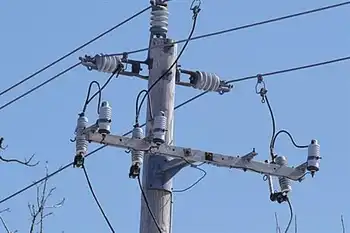Too soon for EVs, says analyst
ALBERTA - Is the world ready for electric cars? Are electric cars ready for the world? At least one prominent Canadian automotive consultant thinks the answer to both questions is no, and he's pretty passionate about why.
Dennis DesRosiers, president of DesRosiers Automotive Consultants, says that in trying to see through the electric vehicle hype, he has looked at the track record of the closest comparable vehicle — the gas-electric hybrid that's been on the market for 11 years.
"In those 11 years, Canadians bought 18 million vehicles and 58,000 hybrids, which, in my mind, is almost nil," he says.
DesRosiers, who says he talks to consumer focus groups at least once a week, considers himself fairly plugged in to what buyers are thinking and he believes he understands why hybrids have gained such little traction. He says it comes down to the four main decisions consumers make — consciously and subconsciously — about buying a vehicle:
Size and type — Pickup, sedan, two-door, etc. "Hybrids have been pretty limited, so if you can't get the type of vehicle you want in a hybrid, hybrids aren't even on your list."
Performance — "People say they want a car with a certain get-up-and-go. Quite frankly, many hybrids are underpowered."
Features — From navigation to leather to heated seats, DesRosiers says many hybrids, particularly the less expensive models that could be more popular, "aren't very well appointed."
Price — Hybrids often cost considerably more than competing gasoline-only models. "And, now, consumers are saying, 'Wait a second, I have to compromise on size, I have to compromise on performance, I have to compromise on my features... and pay more?'" DesRosiers plugs all that consumer preference data into his brain and looks ahead to electric vehicles such as the Nissan Leaf and Chevrolet Volt and he says he is not overly optimistic.
Of course, none of this is to say that DesRosiers is writing off electric cars forever. New technology and solutions to his objections are inevitable — and today's electric cars, bought by the so-called early adopters, will provide sound technological building blocks for cars of the future.
As for automakers, General Motors, which is bringing out the Volt in seven Canadian markets this year and Canada-wide in 2012, doesn't dispute DesRosiers' logic. Jason Easton, corporate communications manager for GM Canada, says that, while the Volt may not take the market by storm, "It's hard to say what's going to happen in five to 10 years, and we certainly intend to make the Volt a mainstream consumer product."
Easton says the Volt's main advantages include its on-board gasoline-powered electric generator, which kicks in once the battery is close to cutting out, meaning "the Volt can be your primary vehicle. You don't need another vehicle if you want to go to the lake or skiing — the Volt will get you there."
Easton says that, after two million kilometres of testing the Volt, GM is confident in standing behind a statement of 40 to 80 kilometres of electric-only range, which statistics show is enough that most Volt owners will drive to and from work using no gasoline at all.
He says that range includes winter driving, but he added that extreme heat, as found in a state such as Arizona, is worse on battery range than a Canadian winter due to greater load from the air conditioner than from the heater.
The primary advantage to the Volt is in areas such as Manitoba, with large amounts of hydroelectric power, which produces no greenhouse gas emissions in its generation. It would make less sense in Alberta, which largely relies on coal-fired plants to generate electricity.
Toyota engineer John-Paul Farag, who works in the advanced powertrain department, says Toyota recognizes DesRosiers' concerns regarding the variety of hybrid vehicles available, adding that Toyota has eight hybrid offerings.
"Toyota has committed to having hybrid technology as an option in all of the products we make by 2020," he says.
While the Volt's Canadian price has not been set, Easton says it's unlikely to be less than the $41,000 US price in the United States.
Related News

US Electricity Market Reforms could save Consumers $7bn
WASHINGTON - Electricity-market reforms to enable more renewables generation and storage in the Midwest, Great Lakes, and Mid-Atlantic could save consumers in the US and Canada more than $6.9 billion a year, according to a new report.
The findings may have major implications for consumer groups, large industrial companies, businesses, and homeowners in those regions, said the Wind-Solar Alliance, (WSA), which commissioned the Customer Focused and Clean report.
The WSA is a non-profit organisation supporting the growth of renewables. American Wind Energy Association CEO Tom Kiernan is listed as WSA secretary.
"Consumers are looking for clean, affordable and reliable energy that will keep…




